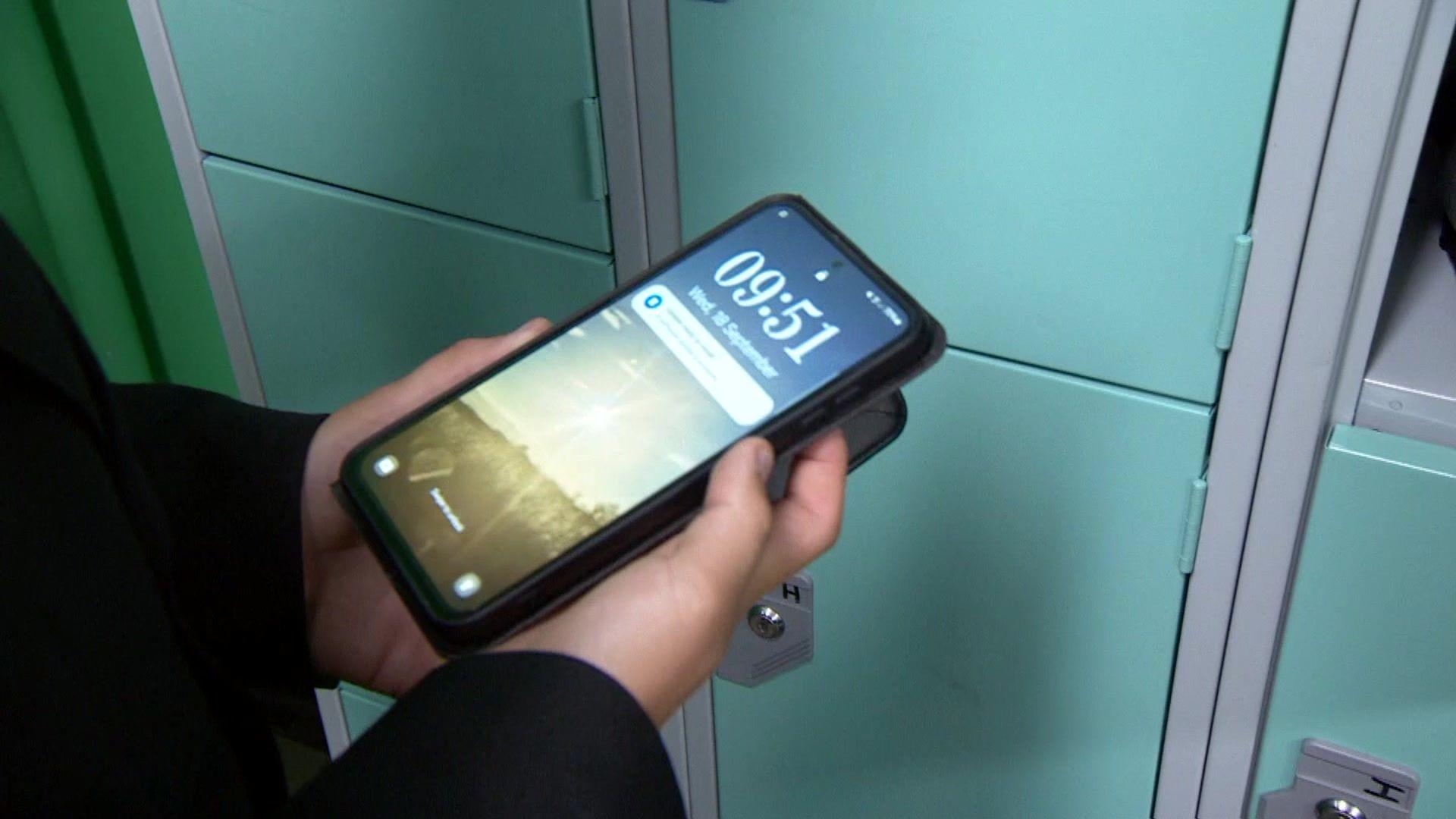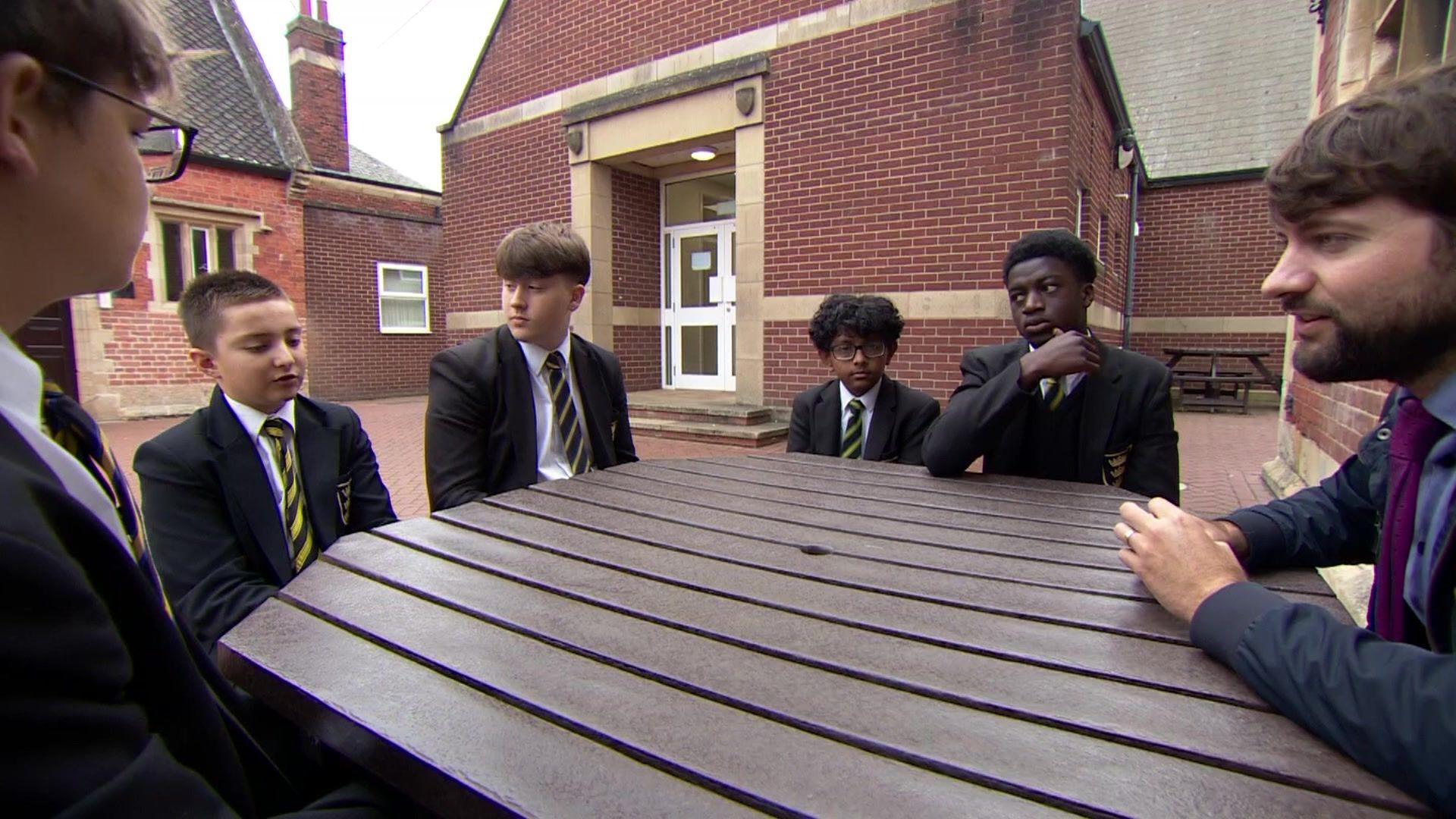School bans pupils' phones to remove 'toxicity'

A Digital Detox at Boston Grammar School forces students to lock phones away during the school day
- Published
A school has introduced a ban on smartphones in an attempt to remove "constant access to the toxicity" of social media.
Teachers at Boston Grammar School said since it introduced its Digital Detox in the summer term "noise has increased" because students are talking more.
The school said there had also been a drop in bullying since the policy began.
"Where you may have once seen students looking at their mobile phones, you now see interactions between students," the school's deputy head teacher said.

Students walking through the school entrance are entering a 'Mobile Free Zone'
Earlier this year, the Department for Education issued guidance intended to stop the use of mobile phones during the school day to "minimise disruption and improve behaviour in classrooms".
In the 2023/24 school year Boston Grammar School said half of the incidents resulting in students being put in isolation were connected to mobile phones.
Since the policy began they have reported none.
"We want to be a safe place where you don't have constant access to what might have happened outside of school," deputy head teacher Peter Barnsley said.
"Those things can be magnified through the use of mobile phones and group chats and so on," he added.
"We wanted to remove that toxicity from our school day. What we've found is a significant reduction in the amount of normal incidents that would have been made worse by mobile phones."

Most students the BBC spoke to responded positively to the Digital Detox
Several students told the BBC they had seen changes in behaviour as a result of the ban.
Davindu said: "Most students are now able to get off the screen and spend more time with nature."
Nayan said he had noticed a change during breakfast club in the mornings where students had been previously been "sat around on their phones".
Since the ban students did their homework because there were "no distractions" he said.
Student Riley said: "The rule was there that you weren't really allowed on your phones but it was kind of just a 'put it away and don't let me see it again' however now the rules are set and the boundaries are there.
"I found it hard just to kind of leave it and forget about it, but then eventually it's like anything you pick it up and it comes into the routine of the school day."
One of the unexpected consequences of the policy was an increase in chatter in hallways and at break times, Mr Barnsley said.
"The energy of the school is supposed to embrace the fact that we have young people interacting with each other, thinking with each other, talking to each other. We've certainly seen a lot more of that."
"So yes maybe the noise has increased around the school but it's a positive noise!"
Listen to highlights from Lincolnshire on BBC Sounds, watch the latest episode of Look North or tell us about a story you think we should be covering here, external.
- Published14 September 2024

- Published15 August 2024

- Published4 November 2016
